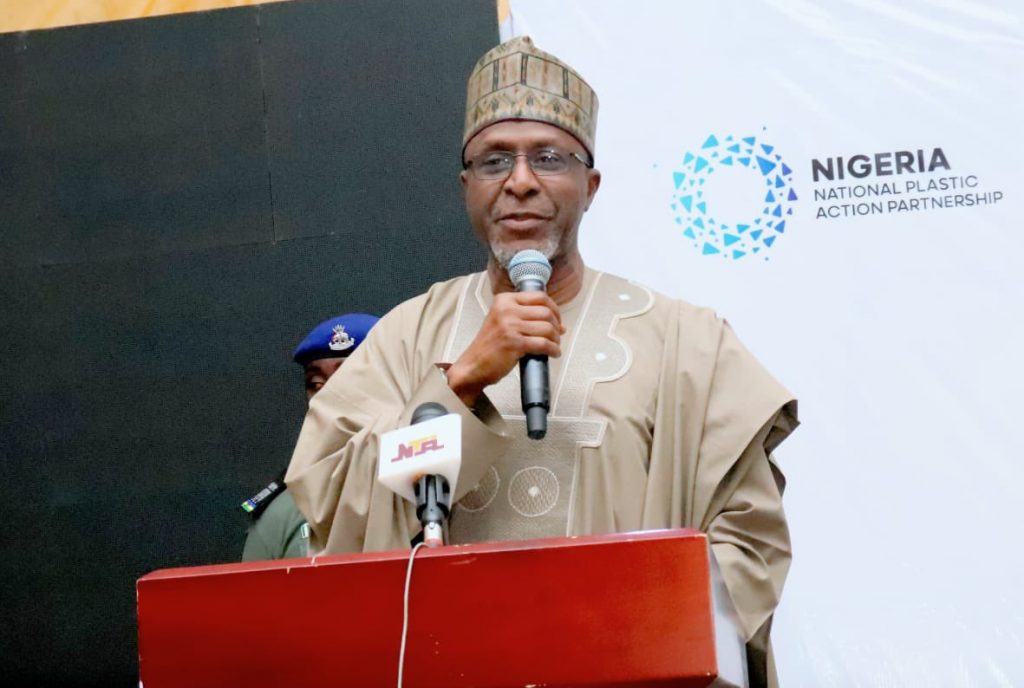The Federal Government has reiterated its commitment to achieving universal access to clean cooking energy by 2030, in line with the Energy Transition Plan and the Climate Change Act.
Minister of Environment, Balarabe Lawal, stated this at the Nigeria Clean Cooking Forum organised by the Nigerian Alliance for Clean Cooking (NACC) in Abuja. He said women and children bear the greatest burden of unsafe and inefficient cooking practices, stressing that the forum is more than just a gathering, but a movement that would transform the lives of millions of Nigerian households.
According to him, thousands of lives are lost yearly due to household air pollution caused by inefficient cooking methods, such as the use of firewood, charcoal, and other traditional fuels.
“Beyond this grave health challenge, our forests continue to diminish, while the climate changes at an alarming rate. Women are compelled to spend hours gathering fuel, wasting time that could otherwise be invested in income-generating activities and caring for their families,” Lawal said.
Stakeholders at the forum urged all levels of government to subsidise clean cooking energy and implement the National Clean Cooking Policy. They also called for the integration of the policy into the national climate change development plan to demonstrate collective resolve by the government, the private sector, and development partners to move from policy formulation to concrete action.
The Chairman, Board of Trustees of NACC, Ewah Eleri, expressed concern over the soaring price of cooking gas, which now costs about N25,000 for a 12.5-kilogramme cylinder.
He described the situation as “very frustrating,” warning that the high cost would impede millions of households from accessing clean cooking energy and negatively affect health, environmental sustainability, gender empowerment, and climate change mitigation.
Eleri criticised both the government and other stakeholders for allowing the sharp increase, noting that it runs contrary to the nation’s clean energy goals.
German Ambassador to Nigeria, Annette Günther, reaffirmed her country’s readiness to partner with Nigeria and the Clean Cooking Forum to promote healthier and safer living conditions through technical assistance for energy transition projects.
“Germany is ready to continue supporting Nigeria in delivering practical, innovative cooking solutions that will positively impact millions of present and future generations,” she said.
Also speaking, Ms Inga Stefanowicz of the European Union (EU) expressed the bloc’s commitment to collaborate with all stakeholders to mobilise resources, share knowledge, and implement solutions that would guarantee universal access to clean cooking energy.
“We hope this forum will serve as a turning point, where we match our commitments with concrete actions and strong partnerships to light up every kitchen in Nigeria with clean, safe, and sustainable cooking energy,” she said.
Dr Markus Wagner of GIZ Nigeria and ECOWAS noted that there is ongoing collaboration with the EU to advance the development of clean cooking stoves for Nigeria, with scientists already engaged in related research and innovation.
Similarly, Director-General of the Energy Commission of Nigeria, Dr Mustapha Abdullahi, revealed that Nigeria faces one of the world’s largest clean cooking access gaps, with over 160 million people lacking access to modern technologies. He said about 67.8 per cent, representing over 35 million households, still depend on fuelwood and traditional three-stone stoves for cooking.
“We are committed to supporting the full implementation of the National Clean Cooking Policy through evidence-based planning, research and development, quality assurance, sensitisation, and coordination of programmes that will expand access to affordable clean cooking technologies,” Abdullahi said.
Senior Special Assistant to the President on Climate Technology and Operations, Olamide Fagbuji, stressed that firewood use contributes to severe health risks and accelerates deforestation.
According to him, clean cooking technologies are not only an environmental necessity but also an economic opportunity, as they reduce costs, create jobs, and strengthen local capacity to design and manufacture stoves, an approach already successfully adopted in Tanzania.

